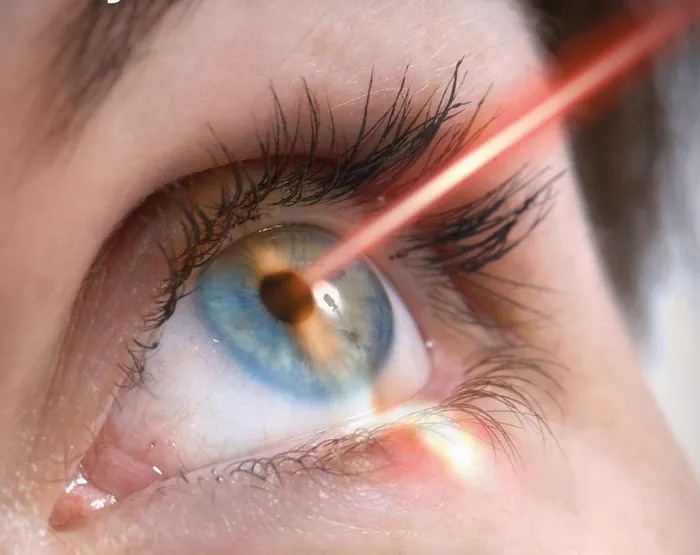Dana Conroy, a videographer based in Madison, Minnesota, found herself facing a difficult decision when her eye doctor recommended considering laser refractive surgery over purchasing a new pair of glasses. Initially hesitant, Conroy trusted her doctor’s suggestion, believing it was made in her best interest. However, what was marketed as a straightforward and painless procedure turned into a harrowing experience for Conroy.
Describing her ordeal as “horrific,” Conroy recounted experiencing the unsettling sensation of smelling and hearing her own tissue burning during the surgery. Despite her instincts urging her to leave, she remained in the procedure room. Conroy, an accomplished professional with 11 Midwest Emmy awards for her work as a videographer with Pioneer PBS television, recently premiered her first feature-length film, “Broken Eyes,” at the Minneapolis-St. Paul International Film Festival on April 14. The film received a warm reception, with Conroy receiving a five-minute standing ovation—an overwhelming moment for her.
“Broken Eyes” is a documentary that delves into the world of refractive laser surgery, shedding light on Conroy’s personal experience and that of other patients who have faced complications post-surgery. Through the lens of her camera, Conroy explores the lifelong challenges endured by individuals like Paula Cofer from Tampa, Florida, who speaks candidly about the absence of a remedy for the complications she suffers.
Optometrists featured in the documentary, including Dr. Cynthia Mackay, Dr. Morris Waxler, and Dr. Edward Boshnick, provide insights into the risks associated with refractive laser surgery, cautioning against its potential adverse effects. While the Mayo Clinic reports high satisfaction rates among those who undergo the surgery without long-term complications, Conroy emphasizes the existence of a significant number of patients facing lifelong challenges, often overlooked by the industry.
Driven by a sense of responsibility to give voice to those suffering from complications, Conroy criticizes the industry for what she perceives as inadequate disclosure of risks to patients. Having spent $6,000 on the surgery and an additional $4,000 on addressing complications, Conroy speaks firsthand of gritty and dry eyes, halos, constant floaters, and other debilitating effects she now contends with daily.
Despite her own struggles, Conroy’s documentary aims to amplify the voices of those grappling with even more severe consequences, such as the need for cornea transplants or the development of complications like epithelial ingrowth. Over the course of three years, Conroy self-funded and dedicated herself to traveling across the country to interview subjects for the film, driven by a commitment to raise awareness and promote informed decision-making.
As she prepares to submit “Broken Eyes” to various film festivals, Conroy remains focused on its potential to educate and empower individuals facing similar choices regarding refractive laser surgery. For Conroy, the film’s impact transcends financial considerations, as she seeks to facilitate a broader dialogue and foster greater understanding of the risks involved.
In sharing her journey and those of others, Conroy hopes to provide invaluable insight into a complex and often misunderstood aspect of eye care, ultimately empowering viewers to make informed choices regarding their vision health.


